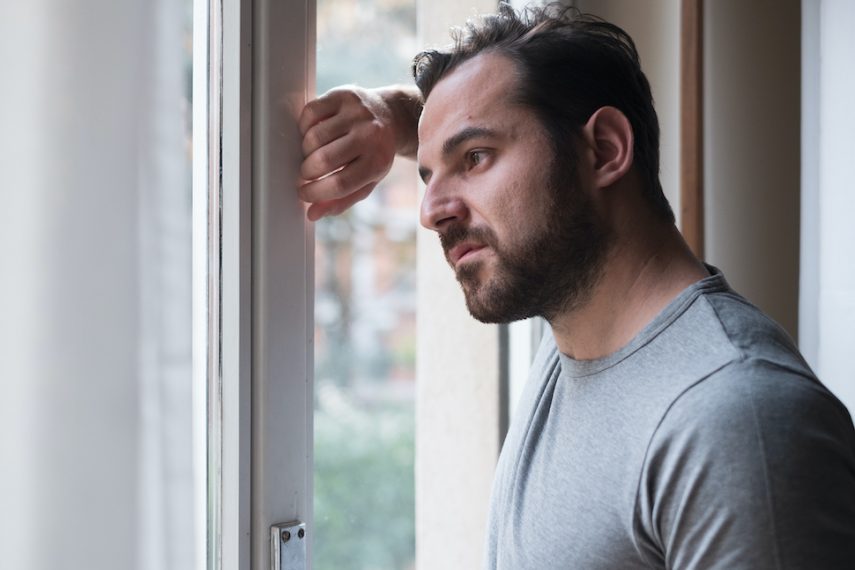Coping With Alcoholism During the COVID-19 Pandemic

The COVID-19 pandemic has caused problems for everyone, from unemployment to being bored at home to getting very sick and even losing loved ones. People struggling with alcohol addiction have faced additional challenges. The urge to relapse during a stressful time like this can be overpowering, while access to treatment and support may be limited. There are healthy ways to cope right now and virtual options for treatment and support group meetings.
A major story of the pandemic has been the increase in drinking. Stuck at home with little to do, with a lot of stress and anxiety, and without the usual socializing opportunities, a lot of people have turned to alcohol. Data collected for the year so far indicate that alcohol sales have increased by 32 percent when compared with last year.
For the non-addict this may be a temporary blip. But if you have an alcohol use disorder, the pandemic may trigger a relapse. If you have been trying to drink less or stay completely sober, this stressful time could cause you to derail. While there are major challenges for alcoholics right now, there are also solutions and even some upsides.
The Challenges of the Pandemic for Alcoholics
If you struggle with drinking, there are several ways in which the pandemic makes life more difficult:
- Social isolation. Social distancing has been the main strategy for slowing or preventing the spread of this disease, but it is causing a lot of people to become isolated. Being unable to go out and be with friends and family can be bad for anyone’s mental health. But if you struggle with addiction, it may be a major trigger to start using or to overindulge in alcohol. Addiction is often referred to as a disease of isolation. When you feel alone, you are more likely to drink. When surrounded by supportive people, you are less likely to drink.
- Mental health crises. The pandemic is a perfect storm of conditions to worsen or trigger mental health issues. Being isolated, out of work, anxious, afraid, and depressed take a toll on stress and mental health. Mental illness and addiction often exist in a cycle. They co-occur because one can be a cause of the other or make the other worse.
- Limited health care. The health care system has been stressed by the pandemic. In-person, non-essential services were halted, and unfortunately that included mental health and addiction care in many places. If you could not access your usual therapy sessions or AA meetings, you may have been tempted to use again.
- Boredom. A common complaint during this public health situation has been simple boredom. People stuck at home have found that having nothing to do is novel for a time, and then it gets tedious. Distraction is an important addiction coping mechanism. Without the ability to do the activities that normally distract you from drinking, you risk having a relapse.
Even while many restrictions caused by the pandemic loosen, the difficulties are not over for anyone with an alcohol use disorder. The quarantine may be back, and the fear and anxiety may persist. There are things you can do, for yourself or for a loved one who’s struggling, to cope in healthy ways in the face of this public health crisis.
Distance Physically, Not Socially
The term social distancing is misleading. It is the physical distance that is important for stopping the spread of the disease. With modern technologies there is no need to be socially distant. If you have been stuck at home, if normal places of socializing are shut right now, find other ways to reach out to loved ones.
Find New Hobbies
Boredom is a great trigger for creativity. Many of the things you used to do to distract from an urge to drink may be off limits now: the movie theater, eating out with friends, concerts. This is a great time to find new activities you enjoy and that provide a distraction.
Work With Your Therapist Online
Believe it or not, some good things have come out of the pandemic, including for addiction. You may have had to readjust how you interact with mental health care providers, but you may also have easier access. Instead of driving to a session, you can work with your counselor online. To cope with the ongoing pandemic, keep those virtual appointments regularly.
Many people have even found it easier to get needed medications for addiction because of the pandemic. The federal government quickly changed rules to increase access to appropriate healthcare and medication. In many cases, you can get online and interact with a doctor and get a prescription right away. If you take medication for alcoholism, this is a benefit.
Understand the Health Consequences
COVID-19 is still a largely unknown entity. Initially thought to be no worse than the yearly flu, it has proven to be a much worse disease for some people and to cause no symptoms for others. What health experts do know is that drinking makes you more susceptible to contracting the disease and having a worse outcome.
Alcohol interferes with how the immune system responds to viral and bacterial infections. In other words, it weakens your immune system, putting you at a greater risk of getting sick. Drinking can also make your body’s response to the disease worse. Alcohol irritates cells in the lungs and has been associated with respiratory distress. Use this knowledge as additional motivation to avoid drinking now.
Hope is Just a Phone Call Away
866-922-1350Virtual Support Groups – Pros and Cons
Most group gatherings have been banned or limited since the pandemic began. For many people this has been a nuisance, but for alcoholics struggling every day it has been a real crisis. If you rely on support groups like AA, not being able to attend when you feel like relapsing can be devastating.
Online support groups and Zoom meetings are alternatives, and there are benefits to using them during this time:
- If you rely on these meetings, you can still access them.
- The meetings can provide additional support even if you don’t normally use them.
- Virtual meetings offer more flexibility.
- It may be easier for you to access an online meeting than to drive to an in-person meeting.
- Some people feel more comfortable interacting virtually and may open up more.
A virtual support group meeting may work for many people in some situations, but they are far from a perfect solution. They present some difficulties and challenges:
- Not everyone has reliable internet service.
- Some people are unfamiliar with videoconferencing technologies and may be too intimidated to use them.
- While some may enjoy the online format, others find it more difficult to speak up or be heard.
- AA does not offer a specific platform for online meetings. Each group must figure out how to do it and make sure everyone has free access.
- As many people forced to work at home have realized, virtual meetings cause a particular type of fatigue. They require more focus, which is draining.
- Disruptions plague online meetings, including those in the home and with technology issues.
Why You Should Consider Residential Treatment During a PandemicNo one can say when the pandemic will be over, which means it is essential to find healthy, positive ways to cope with all the negative emotions it stirs. For an alcoholic, this need takes on extra urgency. Rely on loved ones, virtually if you must, find online support and treatment, and find healthy ways to relax and cope without reaching for a drink.
However, for the struggling alcoholic and their loved ones, the best option during this time—and at all times—is residential treatment at an alcohol rehab facility. Reasons to consider residential treatment now include:
- Residential treatment for alcoholism will provide you the time and space needed to truly focus on yourself in an environment that caters to your recovery with the guidance and care of a dedicated treatment team
- Many addiction and mental health facilities like Alta Mira have extra admissions precautions in place, as well as heightened onsite procedures to provide a safe, secure environment for clients and staff
- Working through any additional trauma related to COVID-19 as soon as possible will help your recovery in the long run
- There are so many more triggers than before, including isolation, family stress, financial concerns, substance use, and fear
- Take advantage of the individualized attention you may need
Alta Mira offers comprehensive treatment for individuals struggling with drug and alcohol addiction as well as co-occurring mental health disorders. We are open, accepting new clients, and have implemented extra policies, procedures, and precautions to help keep our clients and staff safe.
Contact us to learn more about our renowned Bay Area program and how we can help you or your loved one start the journey toward lasting recovery.






